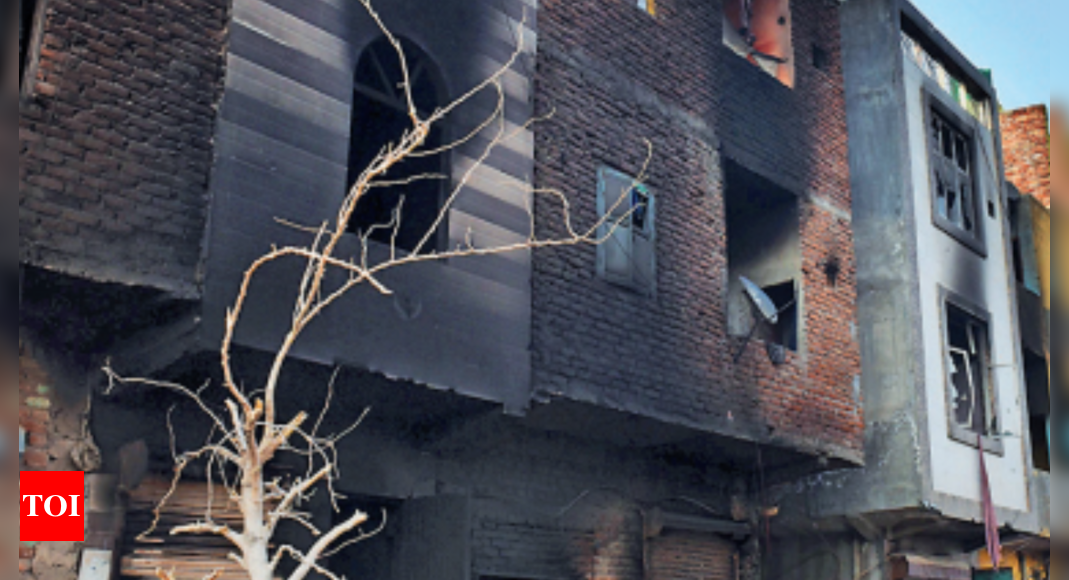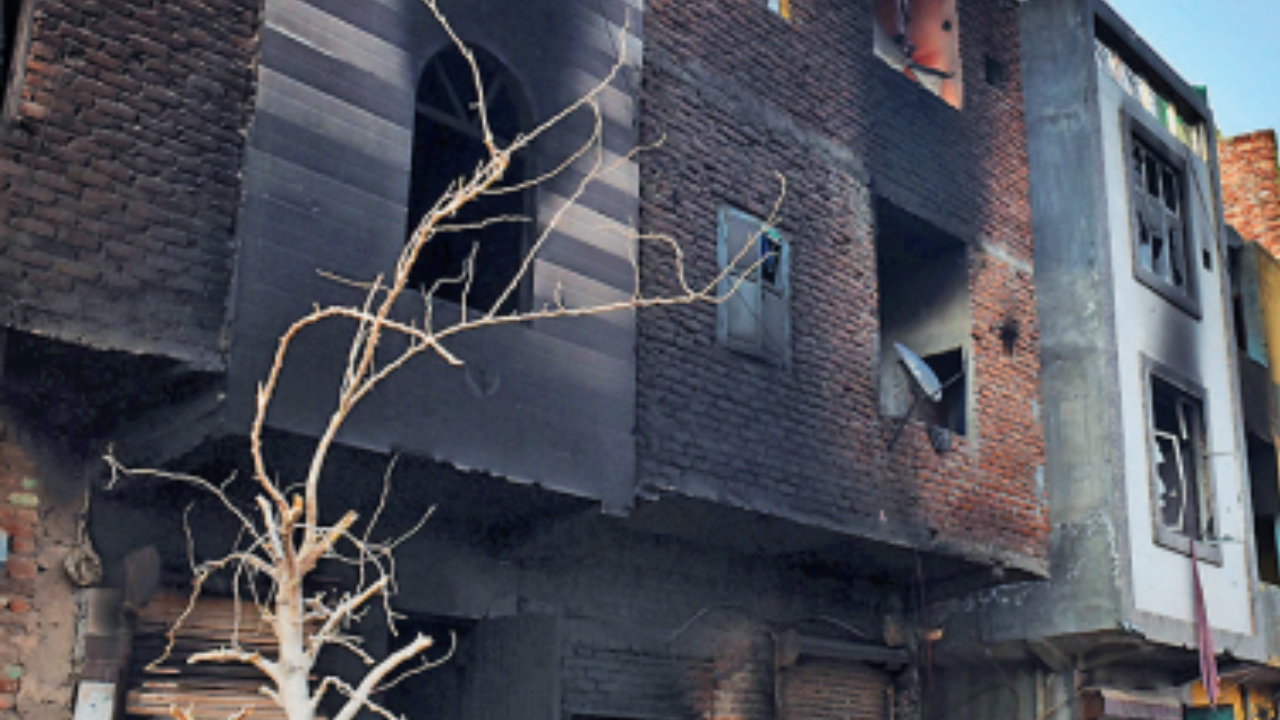NEW DELHI: It’s been three years since the riots in northeast Delhi. The violence may have died down, but the struggle to rebuild lives hasn’t. Many affected families have returned to their home districts, some have moved out of the city in search of employment and others have relocated to areas where they fit in with their communities.Babu Nagar resident Hari Solanki is still putting the pieces of life together, torn apart by the shooting down of his 27-year-old son, Rahul, in mob violence near Rajdhani School. Last year, his family moved from their Babu Nagar home to Prem Vihar in Shiv Vihar. TOI met him at this house, where Solanki now lives with his wife, son and an unmarried daughter. After his younger brother’s death around eight months ago, the burden of taking care of his nephew also fell on his shoulders.Solanki’s wife, Ram Saki, clad in a yellow sari, sat on the floor playing with her grandson. She is recovering from a stroke and sobbed every time Rahul was mentioned in the conversation. “Budhape ka sahara chala gaya, kaisa ho sakta hain jeewan ab (With the person we could lean on in old age gone, what sort of life are we living?),” she said. “His uncle did not have children and took care of Rahul. But after Rahul’s death in the riot, his heartbroken uncle too passed away.”The family received a compensation of Rs 10 lakh from the government, which proved too little for their needs. Bitter, frustrated and worried, Solanki told TOI, “On television, there are debates on the riots. But not one person comes to see what the situation on the ground is like. How were we to use the Rs 10 lakh — to survive, to educate the children, to bear the medical expenditures of old age, to get our daughter married or what? The central and state governments should have thought about the need of families to sustain themselves, not dismissed them with a one-time payment.”Suresh runs a utensils shop in Shiv Vihar. His brother, Dinesh Kumar, was shot dead in Mustafabad, leaving his widow, two children and parents in a quandary. “The government compensation was given to Dinesh’s wife. Our aged parents are now living on their own. As a family, we have no energy left to pursue the authorities for assistance,” said Suresh.Barely able to walk or stand for over a year after being shot in his thigh during the riots, Shaukat Ali, 47, has had to live away from his family to earn a living. “At the time of the riots, I used to work in a factory and worked for 13-16 hours. Now I can only go on for 10 hours. I have two sons, a daughter and a wife. I took a loan to get my daughter married and then moved to Himachal Pradesh to work as a labourer so I could pay back the loan,” said Ali. “I miss my family in Delhi, but I need to earn money.”Ali received just Rs 20,000 as compensation. “Delhi government promised Rs 2 lakh to those who had received bullet injuries, but I haven’t got the amount. Honestly, I don’t have the patience now,” added Ali.Gulshan’s life in Pilkhuwa in UP too changed after the riots. With a husband with impaired vision, she depended on her father, Anwar, who lived in Shiv Vihar and bred cattle, for financial support. Anwar was shot at and thrashed to death by a mob. “For how long could my husband, my two children and I have survived on the Rs 10 lakh we got as compensation? On top of that, Covid appeared and destroyed us,” said Gulshan.Collective trauma also continues. Members of the two communities residing in the same area have jitters whenever they hear religious chants near their homes. They shrink in fear to see a crowd forming in the vicinity. People in Mustafabad recalled how earlier they celebrated each other’s festivals together. There is a certain level of hesitation doing this today. The riots, in their minds, haven’t ended yet.
Source: https://timesofindia.indiatimes.com/city/delhi/3-years-a-lifetime-riot-hit-northeast-delhi-residents-still-picking-up-pieces/articleshow/98161353.cms


